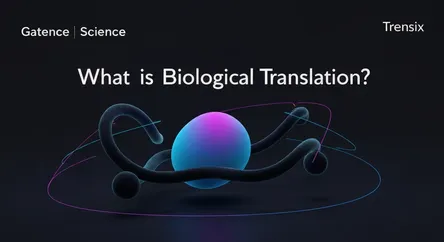Science
What is Biological Translation?

An explanation of translation, the vital cellular process where genetic information from mRNA is used to build proteins, the workhorses of the cell.
What is it?
In biology, translation is the fundamental process where a cell makes proteins. It involves decoding the genetic information carried by a messenger RNA (mRNA) molecule to produce a specific chain of amino acids, known as a polypeptide. This process occurs in the cytoplasm within a complex cellular machine called a ribosome. The ribosome reads the mRNA's sequence in groups of three nucleotides called codons. Each codon specifies a particular amino acid, which is brought to the ribosome by a transfer RNA (tRNA) molecule. The ribosome then links these amino acids together in the correct order, eventually forming a functional protein after folding.
Why is it trending?
As a core component of gene expression, translation is a central topic in life sciences and medical research. Understanding this process is key to comprehending how genetic information results in functional traits and cellular activities. Research into translation is critical for developing new therapies for genetic diseases, cancer, and bacterial infections. For instance, many antibiotics work by specifically inhibiting the translation process in bacteria, thereby stopping their growth. Advances in biotechnology and molecular biology continually provide deeper insights into the intricate regulation and mechanics of translation, keeping it at the forefront of scientific discovery.
How does it affect people?
Translation is essential for all life, as proteins carry out nearly all cellular functions. They act as enzymes that catalyze biochemical reactions, provide structural support to cells and tissues, transport molecules, and act as hormones and antibodies. Without continuous protein synthesis through translation, an organism could not grow, repair tissues, or defend against disease. Errors in this process can lead to the production of non-functional proteins, causing a wide range of diseases. Therefore, the accuracy and efficiency of translation directly impact human health, development, and the ability to respond to environmental changes.